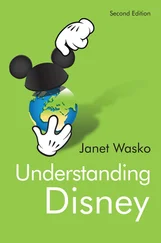On the one hand you can say that such pervasive irony demonstrates that the English are not serious. They are always sliding away from 'The Truth'. On the other hand you can say that they are deeply serious: in every sentence they are acknowledging that life is more complicated than any statement about it. Is that serious or not-serious? (This is also why the English love Chekhov. Is he serious or not-serious? The answer is obvious for me, but I have heard Russians puzzling over Chekhov's refusal to state his position except in enigmatic ways that cannot be pinned down. Chekhovian humour is close to English humour.)
The experiences of Russians who are familiar with English, even those who live in England, show that it takes a long, long time to understand this approach to life. For us, of course, there is no problem unless, as happens with some people, we are born tone-deaf to the language of a culture. I do not want to suggest that the English all laugh at the same jokes or that we all enjoy the same comic programmes. Just as in other cultures there are ranges of humour which are highly entertaining to people with one level of education, and other ranges of humour which are very funny to those with another level of education. The BBC offers a wide range of comedies, comic shows and comic presenters on our television and radio programmes, but though they embody our sense of humour they cannot define it. English humour is a way of seeing the world which is so embedded in our idioms and expressions, so easy yet unobtrusive, that foreigners, including Russians, all too often take the literal meaning to be the real meaning. Meanwhile we are communicating among ourselves, oblivious to your puzzlement. For despite our different levels of education, we share this curious, unostentatious yet zany appreciation of the weirdness of circumstance. You can see it in our films (but Russians do not watch our films, or if they do, they rarely understand them). You can see it in our literature, though foreign readers usually look very blank when told that our writers are pre-eminently humorous writers. You can see it in our enthusiasm for heterogeneous gatherings of people with apparently boring obsessions about small things.
Earlier in this chapter, I spoke of Darwin who gathered thousands of bits of evidence of biological change and slowly constructed a theory which is really a celebration of diversity. We are all different from one another but we can probably put some of the pieces together. Shakespeare is very English in this respect, although the problem is that foreigners treat his writings as The Great Writings of A Great Man on Great Tragedy. He is not like that at all; his characters are funny and wry and sad and angry and absurd and hurt and lewd and grieving and sharp and simple all together. They are complex yet ordinary human beings. They are much more worried about life than about rhetoric, and yet Shakespeare gives them the most varied and poignant speech to express their mixed and deeply-felt emotions.
Do not forget Shakespeare. He writes not just about Hamlet but about Laertes, not just about Romeo but about Mercutio. His plays show up the absurdities as well as the grandeurs of heroism. His characters are capable of both loving and mocking any emotion which we admire, and of tolerating, even forgiving any unpleasant response. No one is immune from criticism, and no one - even Iago - is excluded from our concern. (Iago is very funny). Shakespeare deals with all kinds of men and women with a generous and sympathetic tolerance; but he never forgets to show that other voices must be heard: comedy, for example, leads to humiliation, so let's laugh and then hear what it is like to be humiliated; the grandest of people - such as Lear - are bewildered and vulnerable when faced with simple unkindness; heroic leaders in times of war are rightly challenged by ordinary soldiers, and, in his last play, The Tempest, he presents us with a virtuous man who believes that he therefore has the right to control people virtuously. Prospero, nudged by Ariel and cursed by Caliban, eventually abandons this delusion.
The cultural spokesmen of other countries have often felt uneasy about Shakespeare's plays and criticised them because they do not uphold the values of religion and the state, they subvert the pretentiousness of important people, ignore theoretical principles and are funny in the midst of grief and tragedy. When I think about Shakespeare, I know what it means to be English.
I cannot summarise the values and culture of the English, let alone the British, in any more resounding way. While many English readers would more-or-less agree with me, many would not. If we think about ourselves as British, the problems are compounded by the singing and passionate voices of the Scots, the Welsh, the Irish - all of whom Shakespeare chose to tease. Nonetheless, in choosing to end by turning to our greatest dramatist and poet, I am declaring an interest not in cultural theories and notions, but in real people as individuals living in a dynamic society. Shakespeare wrote about people. Coming back to Shakespeare is coming home.












